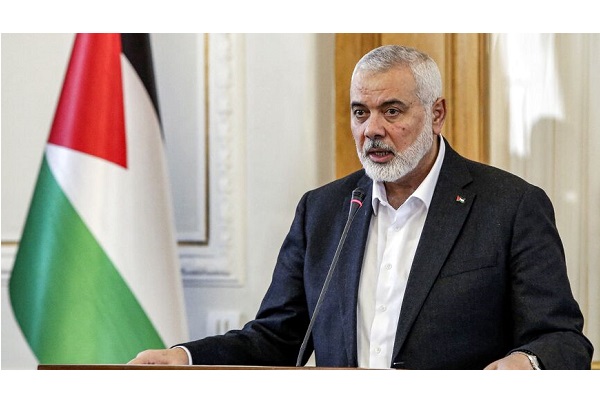ISLAMABAD: The Foreign Office on Friday sharply criticised Israel for its flagrant violations of international law and urged the UN
ISLAMABAD: Planning Minister Asad Umar on Thursday said the option of lockdown was not being considered presently despite the Omicron-driven fifth wave of the coronavirus causing daily infections to go past the 1,000 mark for the first time in nearly three months.
"At this time there is no plan of [imposing] lockdowns. We are looking at [Covid] numbers very closely as we shared today what has happened in the rest of the world and what is starting to happen in Pakistan," Umar told Geo News.
Instead, he said, the immediate focus was on scaling up the pace of vaccinations and enforcing the previously placed restrictions on those who refuse to get vaccinated.
Separately, Sindh Chief Minister Syed Murad Ali Shah stressed the need for precautionary measures against the virus, revealing that 268 cases of the Omicron cases had been detected in the province so far.
In a statement issued by the Chief Minister's Office, Murad said 95 of the 268 Omicron cases were detected among 133 samples tested between December 28, 2021 and January 2, 2022.
"This shows the prevalence of Omicron in the city," he said, adding that the local transmission of the variant was also taking place.
Murad said some of the Omicron cases detected in the province had a travel history, while the rest were locally transmitted.
"Prevention is necessary for protection against this new wave [of Covid-19]," the chief minister stressed.
However, the authorities had not yet considered tightening Covid-19 restrictions, he said in another statement issued later in the day.
The planning minister's and Sindh chief minister's comments come on the same day as Pakistan reported 1,085 new coronavirus cases for the last 24 hours.
The country had last reported more than 1,000 cases with 1,086 cases on October 14, 2021.
According to the National Command and Operation Centre, the positivity rate has risen to 2.32 per cent.
The countrywide breakdown of cases and deaths for the last 24 hours:
Sindh: 578 cases, 1 death
Punjab: 360 cases
Islamabad: 104 cases
Khyber Pakhtunkhwa: 36 cases, 3 deaths
Azad Jammu and Kashmir: 6 cases
Balochistan: 1 case, 1 death
Gilgit-Baltistan did not confirm any new infections or deaths.
The rise in cases is being driven by the highly transmissible Omicron variant of the coronavirus which has brought a fifth wave of the disease to the country.
Warning of the possibility that the public health system may come under considerable stress, Special Assistant to the Prime Minister (SAPM) on Health Dr Faisal Sultan earlier said that provinces had been advised to make arrangements such as ensuring the availability of ample oxygen to deal with any such situation.
Talking to reporters, Dr Sultan had said that a week ago the positivity rate was less than 1pc but it had doubled over the course of a few days.
“We will be in a better position to make predictions about the pace of increase in cases next week, as the incubation period of the virus is around one week, but at the moment it seems like cases will increase,” he had said.
In his opinion, hospitalisation needs would increase and this was why provinces had been advised to make arrangements.
“They have been advised to arrange oxygen and ensure availability of other hospital supplies to deal with any untoward situation,” Sultan had said.
When asked if the rainy weather would have any effect on the transmission of the virus — some believe that in humid conditions the virus is unable to survive in the air for a long time — Dr Sultan said that Covid-19 had proven all theories wrong.
The SAPM said their data had indicated that Omicron was only causing mild symptoms in vaccinated people, especially the elderly. He also pointed out that women had benefitted more from vaccine as compared to men and encouraged every woman to get vaccinated.
However, he warned that: “We cannot say that Omicron symptoms will be mild for everyone and all such speculation is premature.”
Planning and Development Minister Asad Umar had also warned about the rise in the number of Omicron cases and urged the public to take precautions.
Pakistan had placed a complete ban on Nov 27 on travel from six south African countries — South Africa, Lesotho, Eswatini, Mozambique, Botswana and Namibia — and Hong Kong in the wake of the variant's discovery.
This travel ban was later extended to nine more countries — Croatia, Hungary, Netherlands, Ukraine, Ireland, Slovenia, Vietnam, Poland and Zimbabwe.
Additionally, the National Command and Operating Centre placed 13 countries comprising United States, United Kingdom, Germany, Trinidad and Tobago, Azerbaijan, Mexico, Sri Lanka, Russia, Thailand, France, Austria, Afghanistan and Turkey in category B.
All passengers from these countries need to be fully vaccinated, while everyone above the age of six must possess a negative PCR test report issued not more than 48 hours before boarding.
You May Also Like
GAZA: Hamas political leader Imsail Haniyeh will meet Turkey’s President Recep Tayyip Erdogan on Saturday with Middle East tensions
NAROWAL: Punjab Chief Minister Maryam Nawaz visited Kartarpur on Thursday via helicopter and she was not travelling with a motorcade






